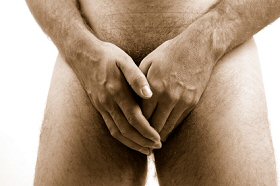 Gay men who are not considered sexually desirable are more likely to engage in risky sexual behavior, suggests new research appearing in the Journal of Health and Social Behavior. Researcher Adam Isaiah Green, from the University of Toronto, said that the same men may also develop psychological problems as a consequence of feeling undesirable.
Gay men who are not considered sexually desirable are more likely to engage in risky sexual behavior, suggests new research appearing in the Journal of Health and Social Behavior. Researcher Adam Isaiah Green, from the University of Toronto, said that the same men may also develop psychological problems as a consequence of feeling undesirable. For his study, Green interviewed gay men to determine what qualities made some men more sexually desirable than others, and what the consequences of being undesirable might be on mental and physical health.
"I found that young, white, middle-class men are considered much more sexually desirable than men who are racial minorities, over 40 and poor," says Green. "I also learned that for gay men, being considered sexually undesirable can have serious health consequences ranging from psychological issues to risky sexual behavior."
Green says the study demonstrates that undesirable gay men face stigmatization, avoidance and outright rejection, which can lead to depression, anxiety and alcohol abuse. He also noted that undesirable gay men will sometimes forego safe-sex discussion and, in some cases, condom use, for the opportunity of sex with a more attractive partner.
"We tend to devalue sexual life as something that is extracurricular and frivolous, but this research shows a significant link between sexual desirability and health," says Green. "Men with low levels of 'erotic capital' are systematically marginalized, which can take a real toll both physically and psychologically."
Related:
Negative feelings about sexuality indicate poor sexual health
Victimization Chief Factor Behind Gay Suicides
Young Gay Men Are Anxious, Depressed And Prone To Risky Sex
Big Rise In Unprotected Gay Sex Has Experts Worried
Alcohol, Drugs And Age Pivotal To HIV Risk
Source: University of Toronto

